STUDENTS TEACHING—AND WARNING!—STUDENTS
By Bill McLean
PHOTOGRAPHY BY MARIA PONCE BERRE
STYLING BY THERESA DEMARIA
Members of the Josh Burks Foundation High School Council
By Bill McLean
PHOTOGRAPHY BY MARIA PONCE BERRE
STYLING BY THERESA DEMARIA
Members of the Josh Burks Foundation High School Council
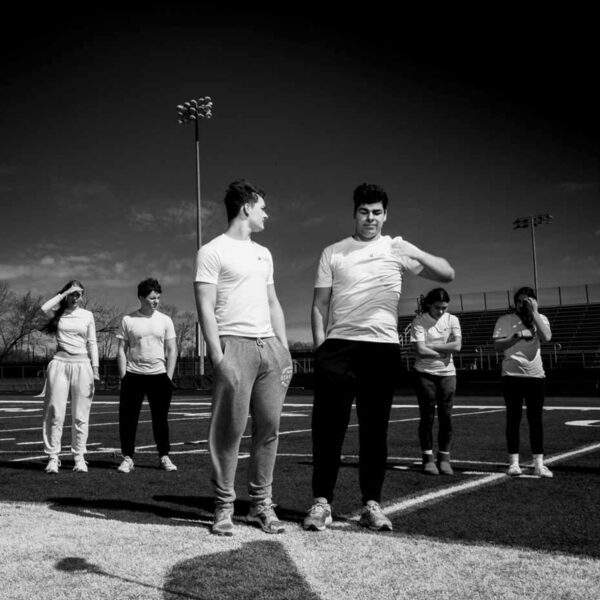
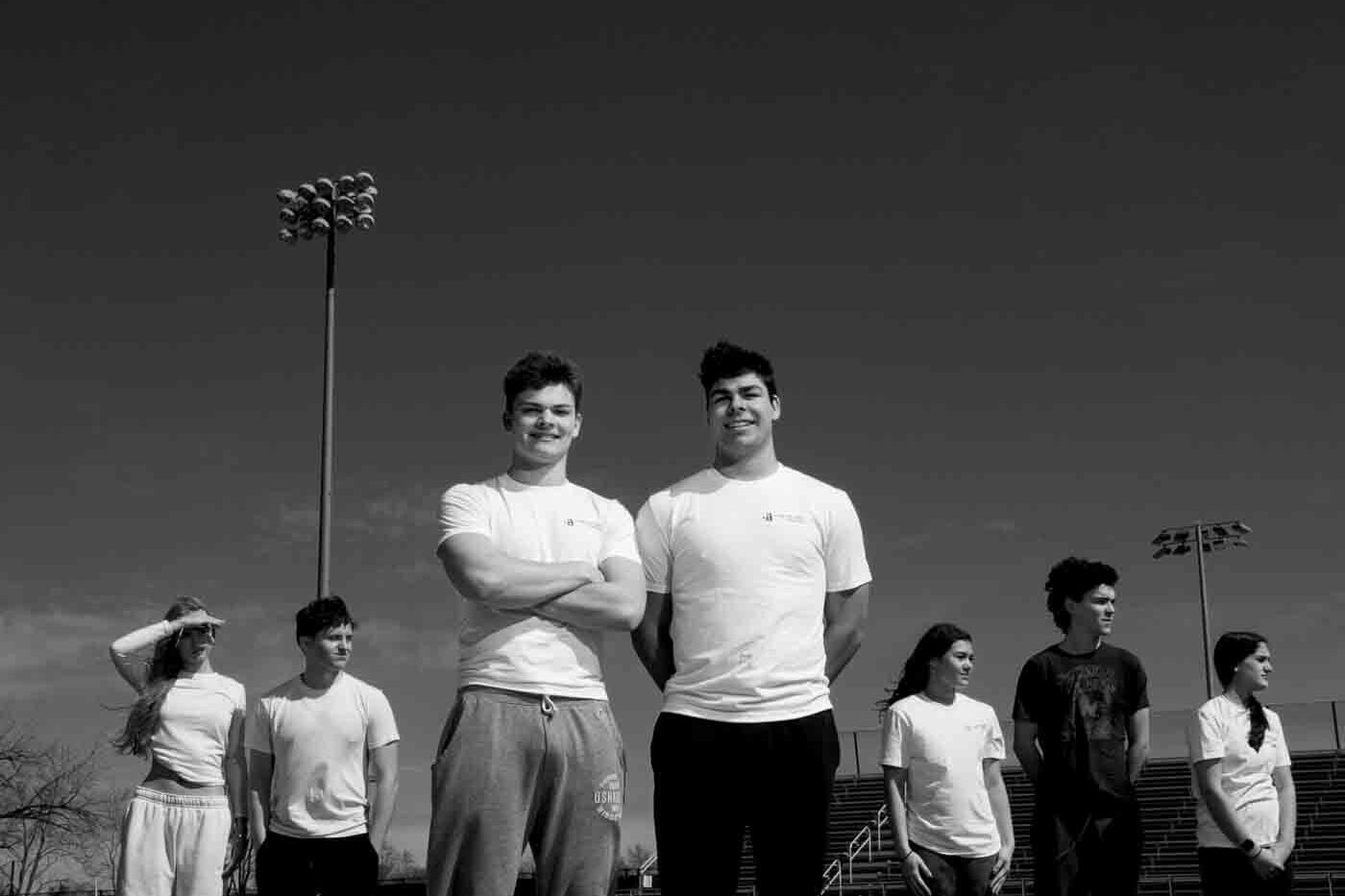
One by one on a Monday morning in March, around 30 Barrington High School (BHS) freshmen enter the school’s Career Resource Center (CRC) and are offered a Jolly Rancher candy by a teen leader of that day’s presentation about the fentanyl crisis in America.
Many grab a piece, unwrap it, and plop it into their mouth. Others reach for a treat in a bag and save it for later. A few decline the sweet freebie on their way to a seat.
Some 20 minutes later, one of the presentation’s leaders, BHS senior Josh Peipert, asks those in his audience who had consumed the candy, “Why did you feel comfortable tasting it?”
One replies, “Because we’re in a school setting.” Another answers, “I trusted the person who offered the candy to me.” Peipert and his twin brother/co-presenter, Nick, smile at the front of the room. Hearing that second response gives the pair of student-athletes—Josh played linebacker for the Broncos’ football team; Nick quarterbacked the team—the perfect opportunity to analogize the innocuous pre-talk giveaway to the perilous risk that preceded the death of Josh Burks (BHS, Class of 2021), a well-liked, smart, affable student-athlete (football, track and field) in high school and a business student at Illinois State University.
Joshua LeRoy Burks—“Joshi” to some, “JB” to others—did not know he had ingested a fentanyl-laced Percocet and died at home in Lake Barrington on December 1, 2022.
He was 20.
“Josh was a son, a brother, and a friend, just like us, and we’ll never forget his smile and how joyful he was as a referee during our flag football games,” Nick Peipert tells the room of freshmen, moments after the youngsters had viewed a highly affecting video of Burks’ too-short life, including images of him resting and beaming in a laundry basket as a tot, wearing BHS football jersey No. 89 and sharp-looking threads for high school dances, and sitting at a table on his birthday, poised to blow out candles on a cake.
“That was Josh’s last birthday,” continues Nick Peipert, who formed the Josh Burks High School Council last summer with his twin and the resolute guidance of BHS Physical Education teacher Wendy Sanchez, the wife of Josh’s BHS varsity football coach, Joe Sanchez. “Eighteen months after graduating from high school, Josh was gone, because he had trusted a person who had given him a pill—a pill Josh did not know was laced with fentanyl.
“We’re here today to make you aware of the dangers of fake pills and to empower you to make safer choices.”
A total of 700 freshmen would hear a slew of jarring statistics and crucial messages on that March day.
Fentanyl is a synthetic opioid that’s 50 times stronger than heroin and 100 times stronger than morphine. A dose of two milligrams of fentanyl is considered deadly; Burks swallowed more than four times the fatal dose of fentanyl, perishing some 90 seconds later. More than 150 people in the United States die every day from overdoses related to synthetic opioids like fentanyl.
Picture three full school buses or one packed 737 airplane.
Josh’s parents, Law and Cyndi Burks, launched the Josh Burks Foundation (JBF) in October 2023, establishing web-based resources to empower community members to learn about and engage in non-judgmental conversations with young people ages 13- 25 about the dangers of fentanyl. The JBF provides annual college scholarships to BHS student-athletes planning to study business administration or a related field.
“People aren’t talking enough about this, which makes what the JBF HS Council is doing in Josh’s name so inspiring,” Law Burks says. “Fentanyl poisoning is the leading cause of death in the 13-25 age group. Not car wrecks, not cancer. Fentanyl poisoning is No. 1. Increasing the awareness of the dangers of these counterfeit pills is huge in our community, in communities everywhere. We don’t want another family to experience what we did.
“Our hope, while informing people of this crisis and Josh’s tragic passing, is that lives will be saved.”
Also in March, Illinois Republican senators filed bills that would take aim at the state’s fentanyl crisis, one of which would reclassify a fentanyl overdose as a “poison.”
“Families are losing loved ones, not because of addiction, (but) because they are unknowingly being poisoned right now,” Illinois Senate Deputy Republican Leader Sue Rezin (R-Morris) told Capitol News Illinois. Near the end of that first JBF HS Council presentation in the CRC, Sanchez drapes her right arm around a woman’s shoulders and walks with her toward the Peipert boys before stopping to address rapt attendees who had been excused from gym class to absorb heartfelt warnings and, possibly, life-saving information.
“This is my friend and my neighbor,” Sanchez tells the freshmen to her right and to her left. “This is Cyndi Burks. We’re moms. A pill taken by her son took his life and brought pain to Cyndi and her family. Too many families are suffering. Please help us get the word out about fentanyl poisoning. If you felt moved today and would like to get involved with the Josh Burks High School Foundation Council in any way, please let us know.”
Other members of the JBF HS Council include Charlie Trapp, Jake Cerasani, Luke Tepas, Sydney Peipert, Maddie Regas, and Morgan Giordano.
“Kids teaching kids; amazing, isn’t it?” says Mike Peipert, the father of Nick, Josh, and Sydney, and the treasurer, as well as one of eight board members, of the Josh Burks Foundation. “Right now, nothing is as big as awareness because it’s the key to reducing the deaths of young people.”
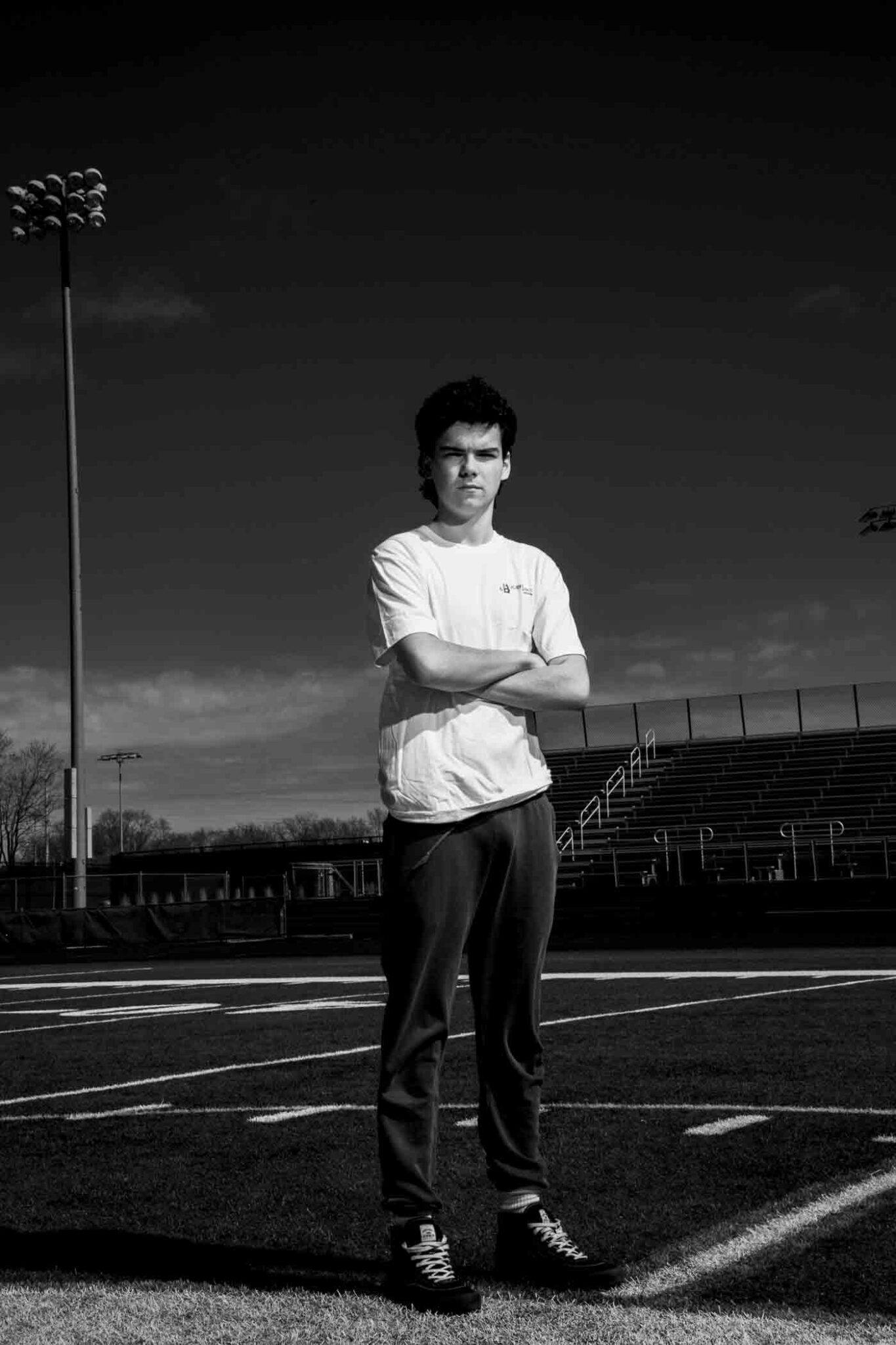


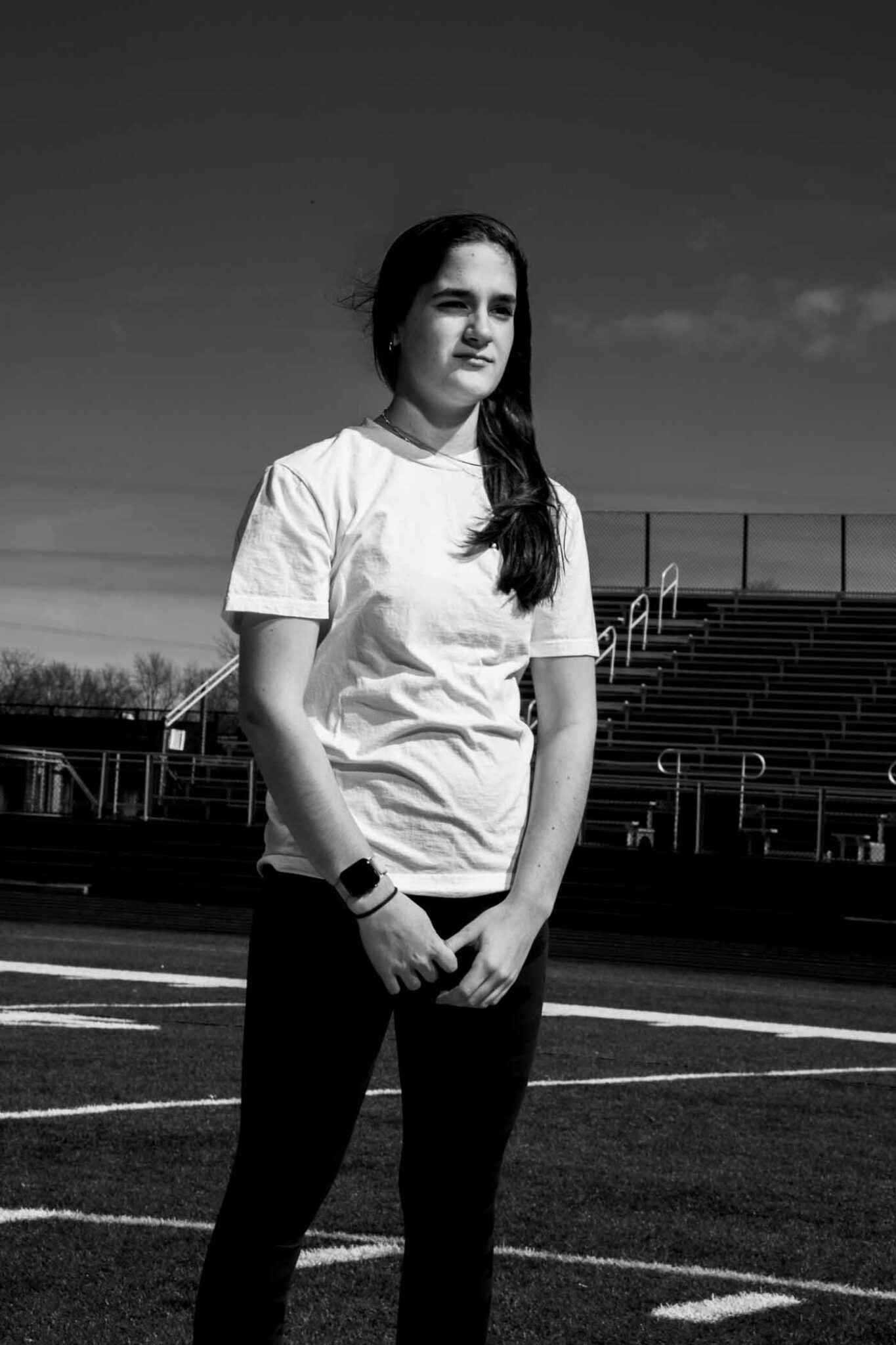
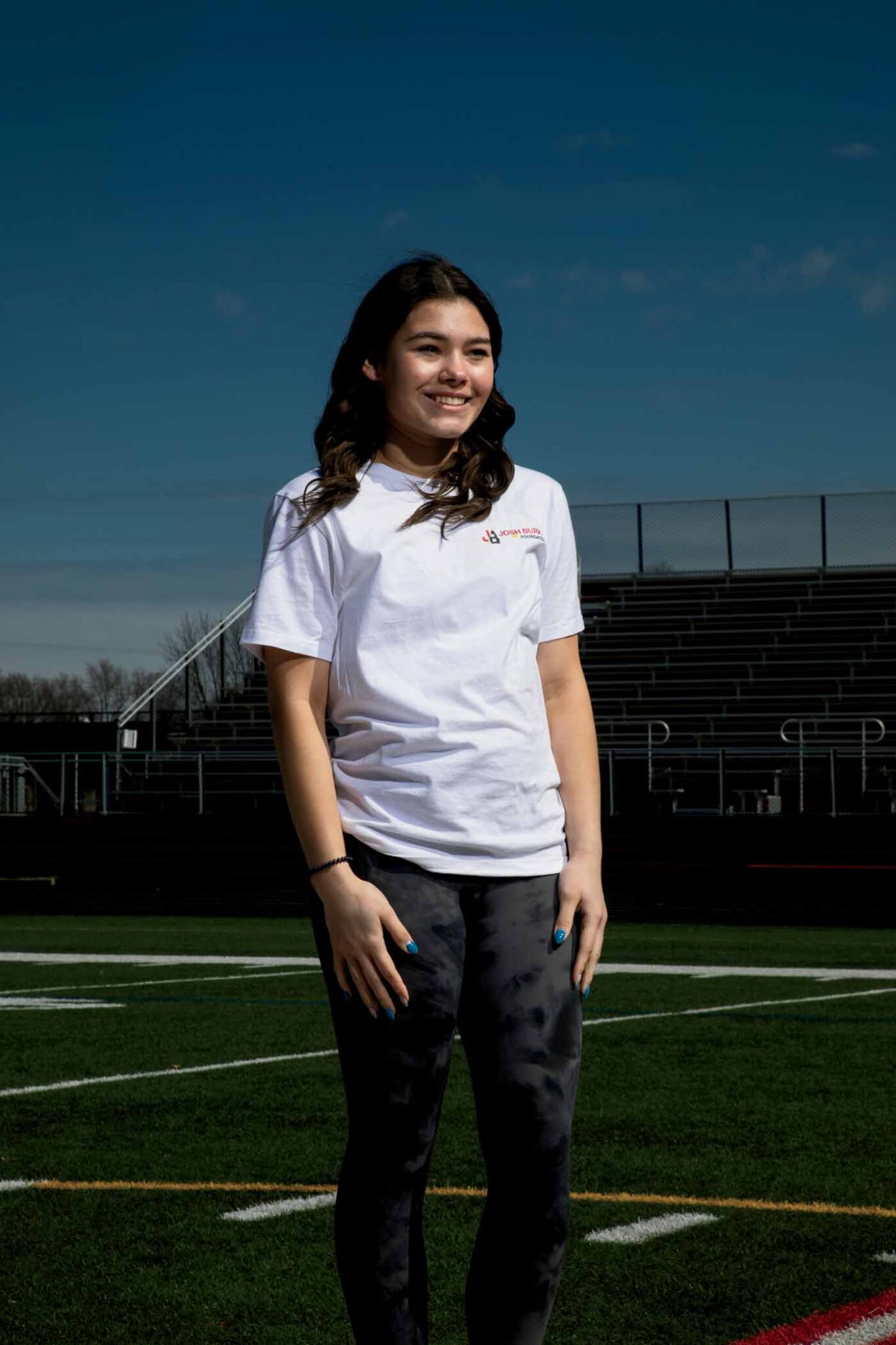

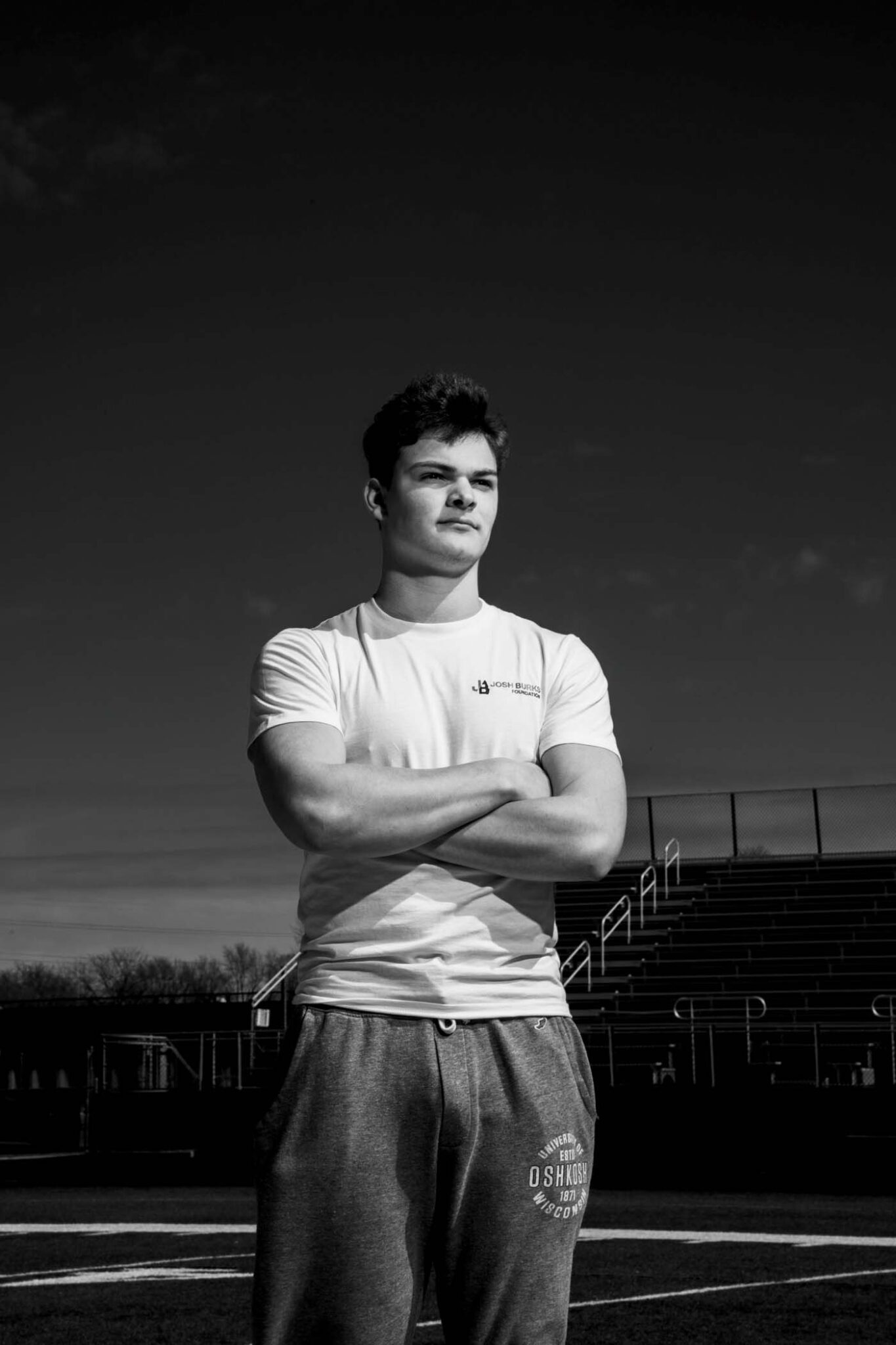
Visit joshburksfoundation.org for more information. The Josh Burks Foundation Instagram handle is @JBurksforLife.
Sign Up for the JWC Media Email